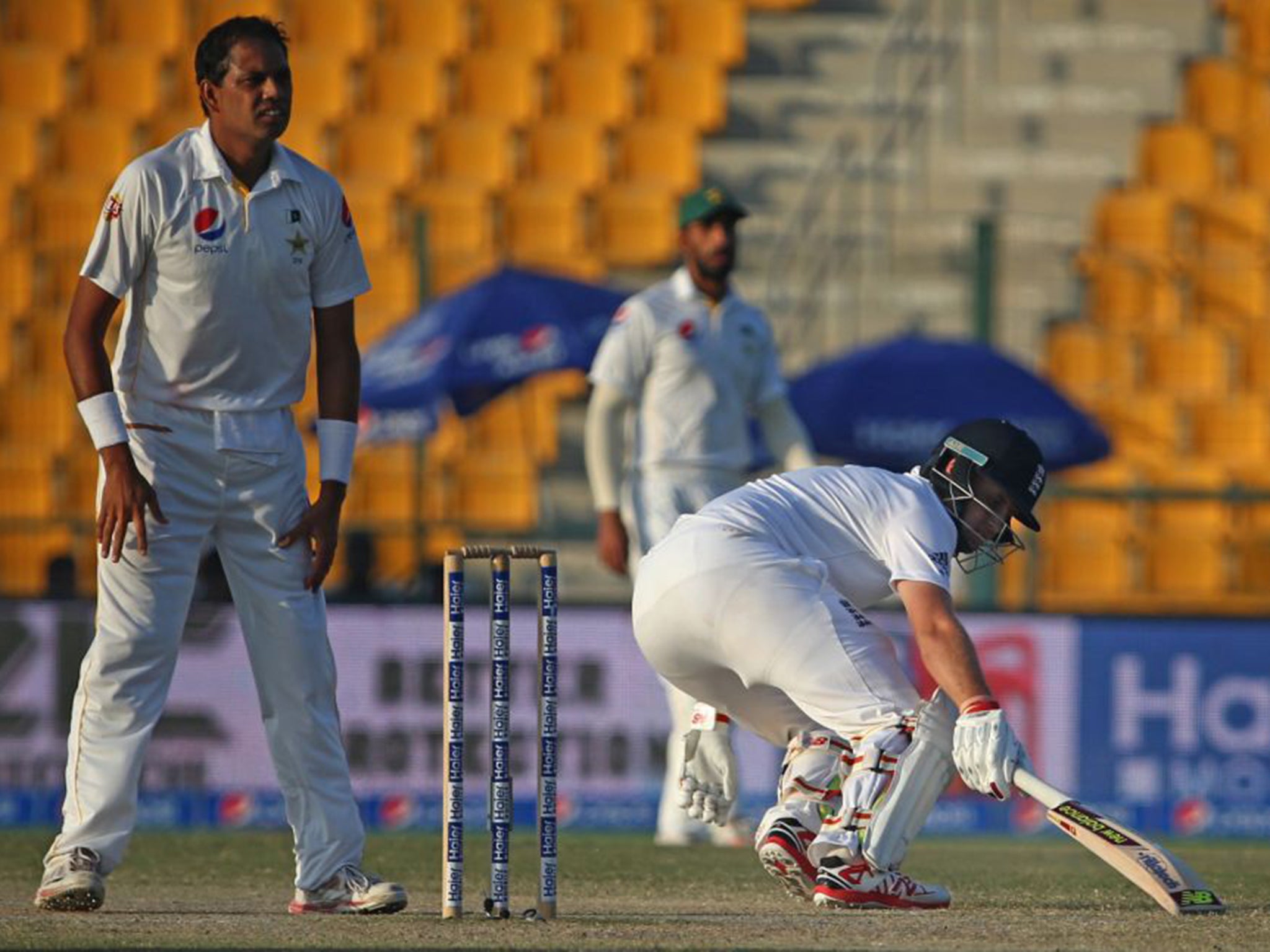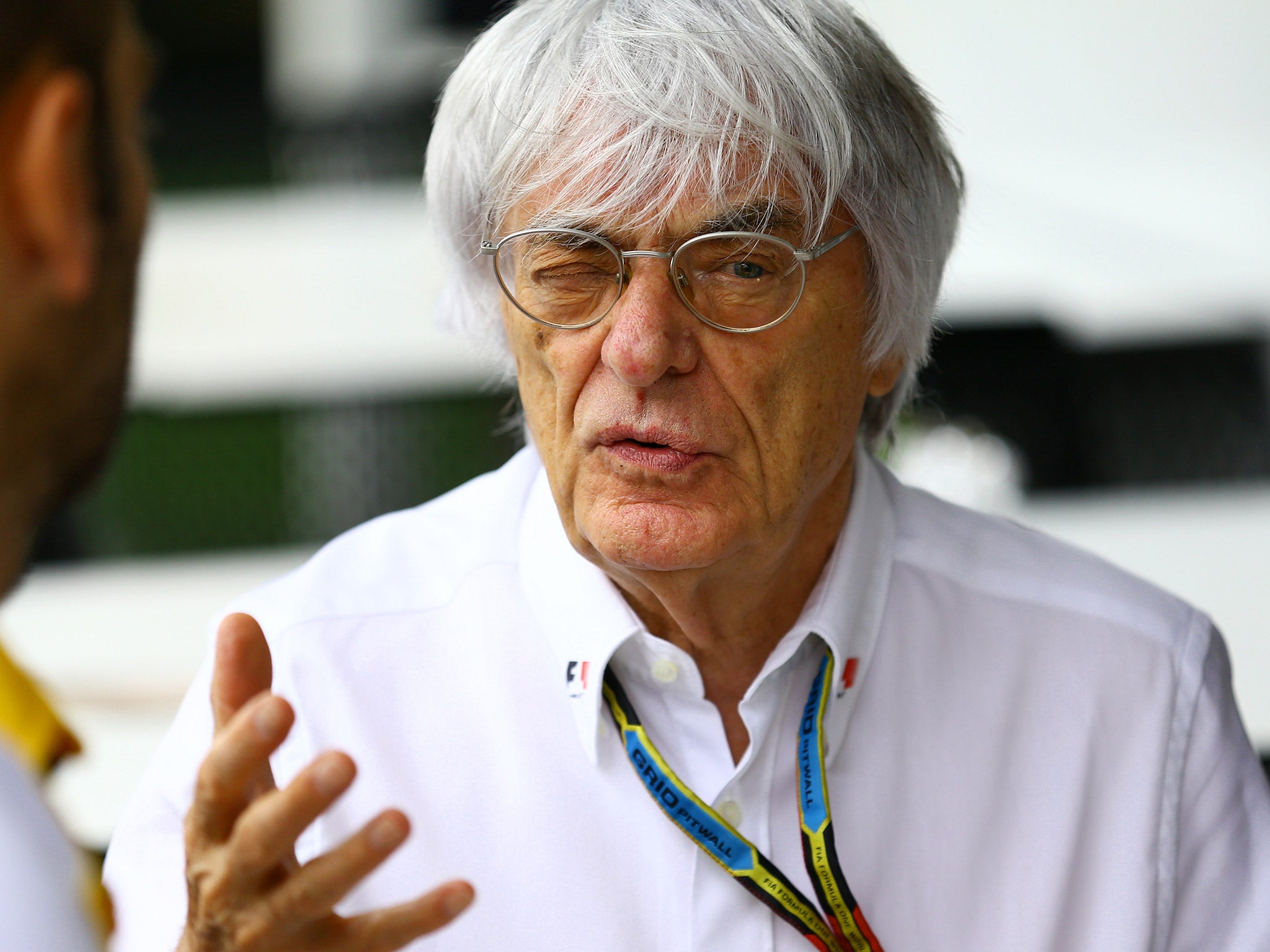Pakistan vs England: Tourist's late flurry does Test cricket a world of good
The Last Word: The drama in Abu Dhabi could not have been better timed, or scripted

Your support helps us to tell the story
From reproductive rights to climate change to Big Tech, The Independent is on the ground when the story is developing. Whether it's investigating the financials of Elon Musk's pro-Trump PAC or producing our latest documentary, 'The A Word', which shines a light on the American women fighting for reproductive rights, we know how important it is to parse out the facts from the messaging.
At such a critical moment in US history, we need reporters on the ground. Your donation allows us to keep sending journalists to speak to both sides of the story.
The Independent is trusted by Americans across the entire political spectrum. And unlike many other quality news outlets, we choose not to lock Americans out of our reporting and analysis with paywalls. We believe quality journalism should be available to everyone, paid for by those who can afford it.
Your support makes all the difference.The ball, once leaden, suddenly spun and spat with venom. England’s cricketers raged against the dying of the light. The umpires called for calm before they called time, with an improbable victory within reach. Judged by the starburst of interest and intensity in Abu Dhabi, Test cricket is indestructible.
The tension was mesmerising. The tale of Adil Rashid’s redemption reinforced the magnetic attraction of sport’s formative swings in personal fortune. Even the infuriating indolence of the Pakistan fielders, as they did their best to meander into the desert sunset, gripped the senses.
Only in Test cricket could they turn a funereal trudge to inevitable equality into a manic, squabble-strewn sprint towards an unlikely triumph. The anaemic version, played over the first four days at the Sheikh Zayed Stadium, perversely highlighted the game’s traditional treasures, since it had to be endured before the faith was rewarded.
Shaped by financial expedience and political prudence, and staged before the sort of crowd which gathers for village cricket in English shires, the first Test was played, for most of its duration, in a state of suspended animation. At its best, the strategic complexity and emotional intensity of a contest staged over five days lends itself to legend and lyricism. At its worst, it has the distress signal of an atonal drone as its soundtrack.
This summer’s Ashes series was compelling, in providing a platform for England’s renaissance, but Test cricket must beware being regarded as anachronistic in an age in which sport is becoming as subtle as a Boris Johnson rugby tackle. Already it is financially viable only in England and Australia. TV schedulers value the game as visual wallpaper. Their employers are businessmen rather than benefactors. When Test matches become the equivalent of steam trains, evocative but of marginal interest, they will shift their money accordingly.
The momentum for the introduction of four-day Tests is growing. Cook is a distinguished, durable batsman, but someone of his temperament and technique belongs in a sepia-tinted print rather than an accelerated, multi-media age. His innings of 263 was a definitive personal statement which reads like a trainspotter’s notebook, as a sequence of statistics. The most telling fact, that at 836 minutes it was longer than the decisive Trent Bridge Test in July, has an uneasy resonance. Cricket needs to change on its own terms. Subtle signs of reassessment, such as a belated decision to explore an Olympic presence and a suggestion that the qualification process for a 10-team World Cup be spiced up to involve more elite nations, are encouraging.
Pakistan’s plight is symbolic. Even the most optimistic observers conclude it will be at least two years before such a politically unstable country can host touring teams. The problem is seeping across South Asia, since Australia abandoned this month’s tour of Bangladesh for security reasons.
Formal cricket in Pakistan has withered to the extent that a T20 offshoot, the Pakistan Super League, will also be staged in exile in the Gulf. Street cricket still engages the masses, but broader concerns will be revived by the controversial rehabilitation of three Test stars found guilty of match fixing.
The fundamental question of trust remains valid, since the ongoing perjury trial of Chris Cairns, the former New Zealand captain, in London has cast another uncomfortably revealing shard of light across an alleged culture of corruption. The tectonic plates of modern sport are shifting as the search for a younger audience intensifies. A future without the nuance of Test cricket still seems fanciful, but a century ago the prominence of tug of war as a global event seemed assured.
The drama could not have been better timed, or scripted.
No room for Woodward
It takes a supreme effort not to observe the fallout from England’s rugby World Cup humiliation through the prism of Monty Python’s Life of Brian. The People’s Front for the Liberation of Twickenham are mobilising on behalf of Clive Woodward, typecast as Brian of Nazareth, the unlikely Messiah.
Assorted mystics and prophets, once found in the RFU committee room, have emerged to demand the saviour’s immediate installation as England’s performance director.
Their logic is flawed, their venom obvious, and their message simplistic. Woodward may have overseen a World Cup win in 2003, but he has been a lost soul since. More measured operators such as Dave Brailsford have been infinitely more successful in institutionalising innovation in their own sports.
Woodward was a notably poor British Lions coach, and his short-lived flirtation with football at Southampton involved one of the great doomed relationships, with Harry Redknapp. A subsequent attempt to influence Olympic strategy foundered on a lack of political nous, which led to resistance from influential coaches.
Latterly he has earned widespread respect as a pundit, without ever dissuading those who wish to read too much into his criticism. He is not without merit, but remains a divisive character. His return to power would signal an unnecessarily punishing period of internecine warfare.
Stuart Lancaster has the strategic mindset to be reinvented as an effective performance director alongside a coach of global stature. That vision would undoubtedly be condemned by some as an establishment choice, but it would certainly be sensible, considering the overhyped alternative.
Bernie taxes patience
If Bernie Ecclestone did not exist, we would have to invent him as a symbol of the consequence of absolute power. The diminutive billionaire’s latest brain burp is one for the ages.

Formula One’s self-styled benevolent dictator defended Sepp Blatter, derided democracy, and described corruption as “a tax football has to pay”.
It’s not quite as offensive as his portrayal of Adolf Hitler as someone who was “able to get things done”, but it should ensure that contempt for what he represents is maintained at acceptable levels.
Join our commenting forum
Join thought-provoking conversations, follow other Independent readers and see their replies
Comments